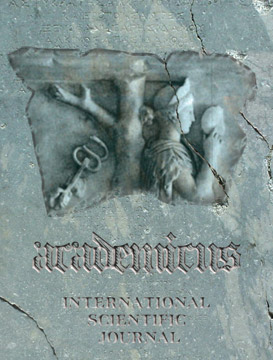Title:
Author(s):
Abstract:
This paper analyses the post SAP persistence of inflation in Nigeria for the period, 1960-2008 with exchange rate, money supply and trade balance as preferred influential variables. To investigate the effect of policy switch from the period of direct instrument to the period of deregulation occasioned by SAP of 1986, we proceed to bifurcate the sample period into two, comprising the period of direct instruments of monetary policy, 1960 – 1985 and the period of indirect instruments of monetary policy, 1986 – 2008. Estimates from a vector auto regression model (VAR) of key macroeconomic variables demonstrate the weak link between money supply and inflation in the both time horizons, which suggests that the hypothesis that money supply is not an effective policy instrument for management of inflationary developments cannot be rejected for Nigeria. The results further suggest that in both time horizons, exchange rate has been identified as a singular most promising macroeconomic fundamental for both internal and external sectors adjustments. However, the deregulation of the domestic economy as occasioned by SAP has significantly diluted the efficacy of exchange rate as a monetary policy instrument for the management of Nigeria’s aggregate money stock and trade balance developments. These notwithstanding, the Central Bank of Nigeria can continue to play a stabilizing role in the economy through the continuation of prudent monetary policies and frequent interventions in exchange rate management to smooth out shocks.
Keywords:
Monetary policy; Exchange rate; Inflation; Money Growth; Nigeria
Full Text PDF:
References:
View complete reference list, click
here
Digital Object Identifier DOI:
The article's content ©Academicus™ Inflation, exchange rate and efficacy of monetary policy in Nigeria: The empirical evidence
by
Dr. (PhD) BigBen Chukwuma Ogbonna
is licensed under a Creative Commons
Attribution-NonCommercial 4.0 International License.
Presented:
November 2015
Included for Publishing:
December 2015
Published:
January 2016,
Volume 7,
Issue 13
Academicus International Scientific Journal is an Open Access Journal. This means that all content is freely available without charge to the user or his/her institution. Users are allowed to read, download, print, search, or link to the full texts of the articles in this journal without asking prior permission from the publisher or the author. This is in accordance with the BOAI definition of open access. Users are obliged to cite the source (Academicus International Scientific Journal) and the author, according to the international citation standards.
To learn more about the OA Policy followed by Academicus ISJ, read Journal Regulations
Academicus
International Scientific Journal
pISSN 2079-3715
eISSN 2309-1088
Address:
Sheshi i Flamurit, Rruga Muze
Al-9401 Vlorë, Albania
Tel: +355 68 60 60 555
info@academicus.edu.al
https://academicus.edu.al



 Scholar
Scholar
 Crossref
Crossref
